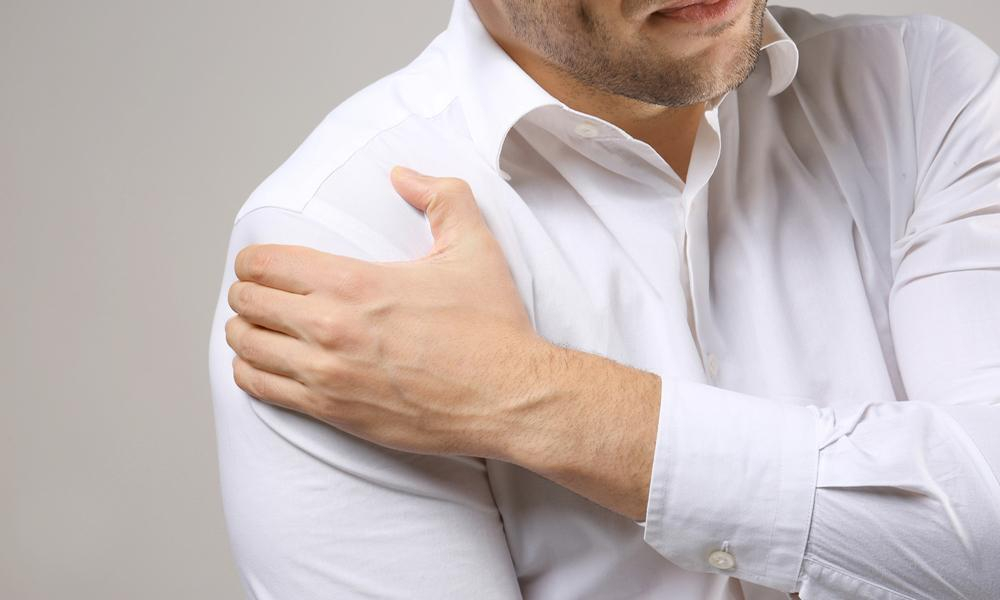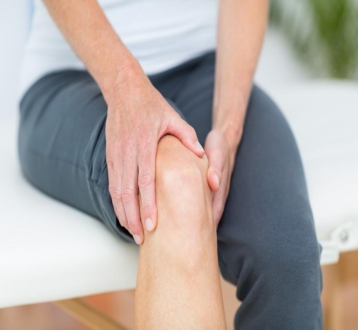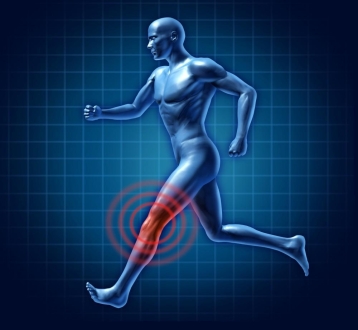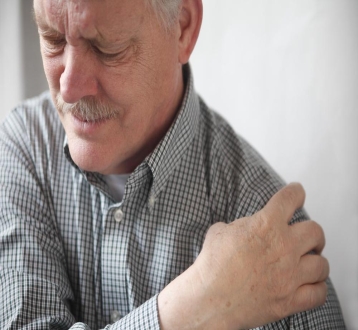
It’s normal to feel a little stiff or sore after an intense workout or an afternoon of yard work — after all, overused muscles usually feel a little achy for a day or two as they recover. But if being active causes you to experience pain, stiffness, or swelling around your shoulder, you may have arthritis.
The term arthritis is used to describe over 100 different conditions that can impact your joints and their surrounding tissues. More than 50 million Americans — including 20% of all adults and hundreds of thousands of children — have been diagnosed with some form of the disease.
As the American population continues to age in the coming decades, the number of people living with arthritis is expected to increase dramatically. In recognition of National Arthritis Awareness Month, Dr. Drew shares a brief overview of the five types of arthritis that most often affect the shoulder joint.
Osteoarthritis
Osteoarthritis, often referred to as wear-and-tear arthritis or degenerative joint disease, is by far the most common form of the condition. It occurs when the smooth cartilage that cushions the ends of your bones progressively breaks down, causing inflammation, irregular motion within the joint, and the development of bone spurs.
Initially, osteoarthritis may simply make your shoulder feel stiff and achy. As the condition progresses, however, it can cause a significant amount of pain that decreases shoulder joint mobility and makes everyday tasks — particularly those that require you to reach over your head — harder to perform. You may also experience a grinding sensation or hear popping or crunching sounds as the bones in your shoulder joint rub against one another.
Although osteoarthritis is most common in adults past the age of 50, it can also develop in younger people following a shoulder joint injury, such as a dislocation or a bone fracture.
Rheumatoid arthritis
Rheumatoid arthritis (RA), the second most common type of arthritis to impact the shoulder joint, is an autoimmune and inflammatory disease. If you have RA, your immune system mistakenly attacks the very cells it’s tasked with defending, causing chronic inflammation in the affected tissues.
In RA, your immune system attacks your synovium tissues, which make up the thin membranes that lubricate your joints to help make joint movement easier and more fluid. As RA attacks this lining and causes it to swell, the affected joint may feel stiff, painful, swollen, and hard to move.
RA is a chronic disease that usually attacks many joints throughout the body. It’s also a symmetrical disease, meaning that if it affects one of your shoulders, it’s likely to affect the other one, too.
Although people of any age can develop RA, its onset is most common in people in their 60s.
Rotator cuff tear arthropathy
Each of your shoulder joints is covered by a tough, fibrous tissue called a rotator cuff. The cuff itself is made up of four muscles and their tendons that keep your shoulder stable in its socket and help you rotate your arm inward and outward.
Rotator cuff tears are very common, particularly in adults older than 40. That’s because tendons tend to become weaker with age, as their blood supply is gradually reduced. Although most rotator cuff injuries happen slowly over time, they can also occur in a single traumatic injury, such as falling, during forceful lifting or pulling.
A long-standing rotator cuff tear that isn’t repaired can cause abnormal joint motion that leads to the development of arthritis. This condition, known as rotator cuff tear arthropathy, causes radiating pain in and around the shoulder joint that makes it hard to lift your arm.
Post-traumatic arthritis
As its name implies, post-traumatic arthritis is a type of joint degeneration and inflammation that develops following a traumatic injury. Although this type of arthritis is triggered by physical trauma that damages a joints cartilage or bone, the condition itself is actually a form of osteoarthritis.
If you’ve ever dislocated your shoulder or broken any of the bones in your shoulder joint, you’re more likely to eventually develop post-traumatic arthritis in that shoulder. Such injuries can cause damage that changes the mechanics of your shoulder joint, causing an accelerated wear-and-tear process.
Avascular necrosis
Avascular necrosis (AVN) is a painful shoulder arthritic disorder that occurs when something disrupts the blood supply to the head of your humerus, which is the upper arm bone that connects your elbow joint to your shoulder joint. Without enough nutrients or oxygen, the affected bone cells begin to die.
Also known as osteonecrosis, AVN initially causes tiny breaks or fissures in your bone tissues. As the condition progresses, it causes the affected bone to gradually collapse, damaging both the cartilage and the joint itself in the process.
Anything that interrupts the blood flow to your shoulder can lead to AVN, including a bone fracture near the joint or a shoulder dislocation. AVN can also be caused by fatty deposits in the smaller blood vessels that feed your bones. People who drink a lot of alcohol or take corticosteroids for a long time have a greater risk of developing AVN, because both of these increase the fatty deposits.
Although AVN can affect people of all ages, it’s most common in middle-aged adults.
Comprehensive shoulder care you can trust
Initially, most forms of shoulder arthritis respond well to rest, icing or moist heat, activity modifications, targeted physical therapy exercises, and over-the-counter anti-inflammatory medications. When these first-line treatments don’t alleviate your pain or help improve your range of motion, surgery may be a solution.
Whether you’ve already been diagnosed with shoulder arthritis or you’ve been living with unexplained shoulder pain for too long, we can help. Call our office in Lafayette, Louisiana, or click the “book online” button to schedule an appointment.










